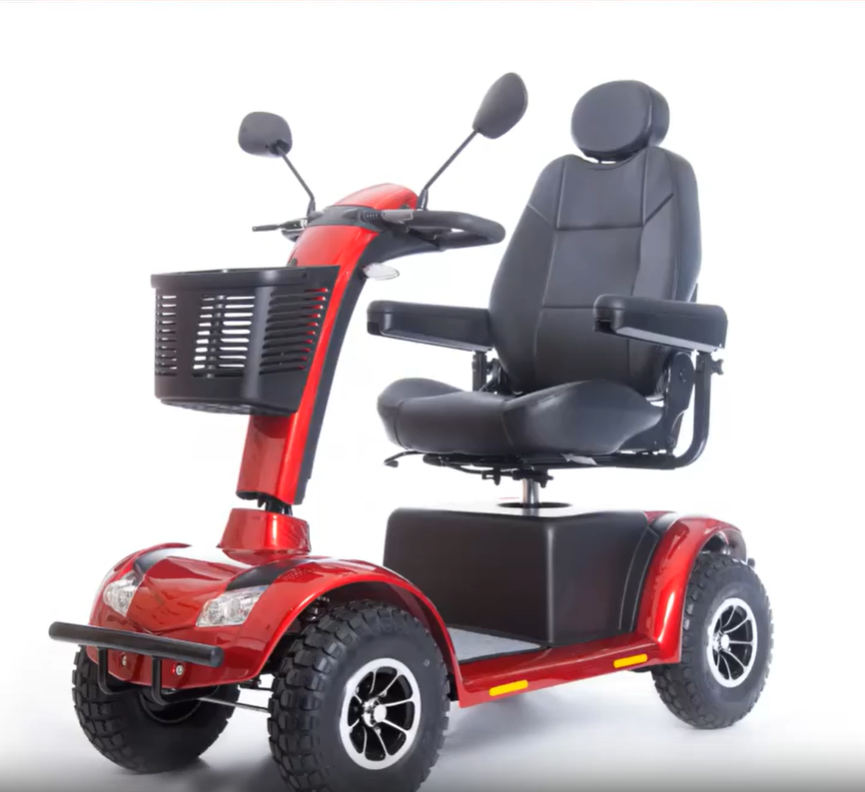Mobility Scooters: A Comprehensive Guide to Enhanced Independence
Mobility scooters have revolutionized the way people with limited mobility navigate their daily lives. These electric-powered vehicles offer independence and freedom to those who struggle with walking long distances or have difficulty maintaining balance. In this article, we'll explore the world of mobility scooters, their benefits, and how to choose the right one for your needs.

What are mobility scooters and how do they work?
Mobility scooters, also known as electric mobility scooters or handicap scooters, are battery-powered vehicles designed to assist individuals with limited mobility. They typically consist of a seat mounted on a wheeled platform, controlled by a tiller or handlebar system. These scooters use rechargeable batteries to power an electric motor, allowing users to travel short to medium distances without physical exertion.
Who can benefit from using a mobility scooter?
Mobility scooters are ideal for a wide range of individuals, including:
-
Elderly people with reduced mobility
-
Those with chronic conditions affecting movement, such as arthritis or multiple sclerosis
-
Individuals recovering from surgery or injury
-
People with balance issues or fatigue-related conditions
While mobility scooters can greatly improve quality of life, it’s essential to consult with a healthcare professional to determine if a scooter is the right choice for your specific needs and abilities.
What are the different types of mobility scooters available?
There are several types of mobility scooters to suit various needs and lifestyles:
-
Portable scooters: Lightweight and easy to disassemble for transport
-
Three-wheel scooters: Offer excellent maneuverability in tight spaces
-
Four-wheel scooters: Provide enhanced stability and are suitable for outdoor use
-
Heavy-duty scooters: Designed for larger individuals or rough terrain
-
Travel scooters: Compact and airline-approved for easy transportation
When choosing a mobility scooter, consider factors such as intended use, weight capacity, battery life, and storage requirements to find the best fit for your lifestyle.
How do I find mobility scooters in my local area?
To find mobility scooters in your area, consider the following options:
-
Medical supply stores: Many local medical supply shops offer a range of mobility scooters and can provide expert advice.
-
Durable medical equipment (DME) providers: These specialized retailers focus on mobility aids and often have showrooms where you can test different models.
-
Online retailers: Many reputable online stores offer a wide selection of mobility scooters with detailed specifications and customer reviews.
-
Local mobility centers: Some communities have dedicated mobility centers that offer sales, rentals, and repairs for various mobility aids.
When searching for “mobility scooters near me” or “disabled scooters near me,” use online directories or mapping services to locate nearby providers. It’s always best to visit a store in person to test different models and ensure the scooter meets your specific needs.
What features should I look for in a mobility scooter?
When choosing a mobility scooter, consider the following essential features:
-
Weight capacity: Ensure the scooter can support your weight comfortably
-
Battery life: Look for a range that suits your daily needs
-
Top speed: Consider your comfort level and local regulations
-
Turning radius: Important for maneuverability in tight spaces
-
Adjustable seating: Ensures comfort during extended use
-
Storage options: Baskets or compartments for personal items
-
Lighting: Front and rear lights for safety in low-light conditions
-
Suspension: Provides a smoother ride on uneven surfaces
-
Foldability or easy disassembly: Important if you need to transport the scooter frequently
Additionally, consider the terrain you’ll be navigating and choose a scooter with appropriate wheels and ground clearance for your environment.
How much do mobility scooters cost, and what are some popular options?
Mobility scooters vary widely in price, depending on their features, build quality, and intended use. Here’s a comparison of some popular mobility scooter options:
| Product | Provider | Cost Estimation |
|---|---|---|
| Go-Go Elite Traveller 3-Wheel | Pride Mobility | $800 - $1,200 |
| Scout 4-Wheel | Drive Medical | $700 - $1,000 |
| Victory 10 3-Wheel | Pride Mobility | $1,500 - $2,000 |
| Buzzaround EX 4-Wheel | Golden Technologies | $1,200 - $1,600 |
| Cobra GT4 Heavy Duty | Drive Medical | $2,500 - $3,500 |
Prices, rates, or cost estimates mentioned in this article are based on the latest available information but may change over time. Independent research is advised before making financial decisions.
When considering the cost of a mobility scooter, factor in additional expenses such as maintenance, batteries, and potential accessories. Some insurance plans, including Medicare, may cover part or all of the cost of a mobility scooter if it’s deemed medically necessary. Check with your insurance provider for specific coverage details.
In conclusion, mobility scooters offer a valuable solution for those seeking to maintain their independence and quality of life despite mobility challenges. By understanding the types of scooters available, their key features, and how to find them in your local area, you can make an informed decision that best suits your needs and lifestyle. Remember to consult with healthcare professionals and test different models before making your final choice.




